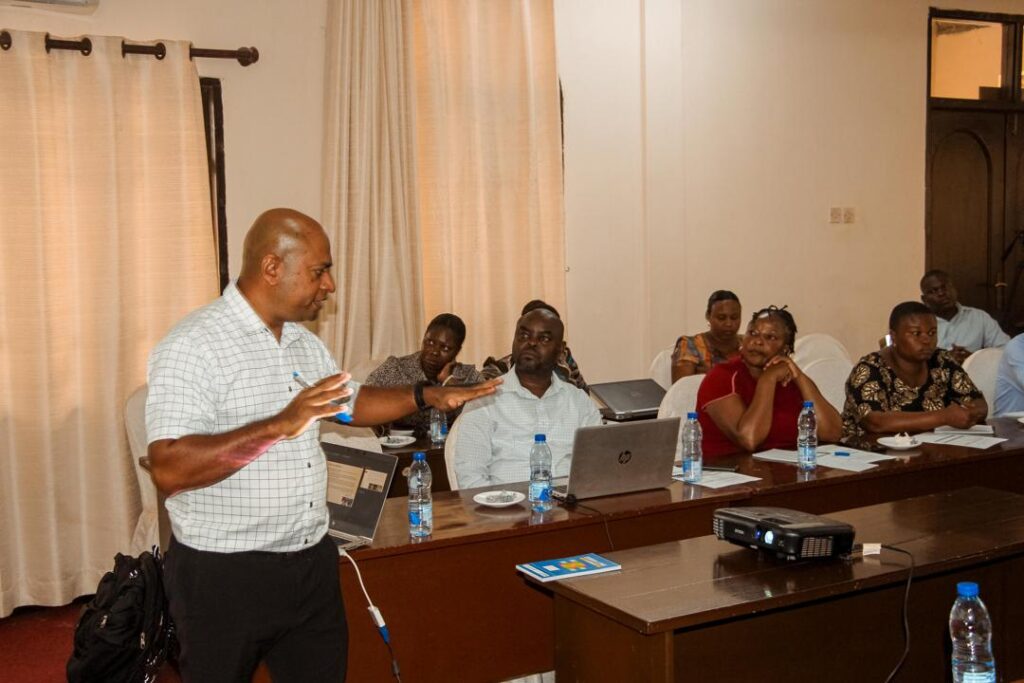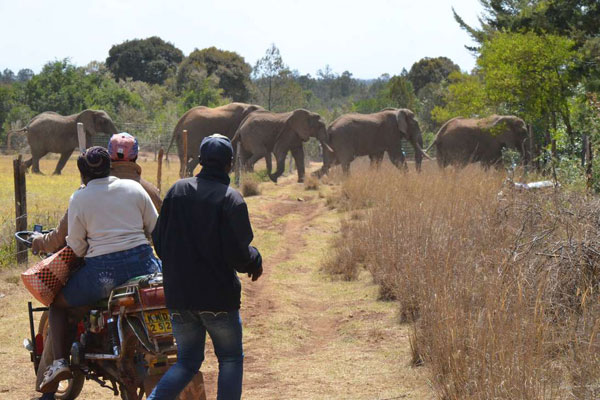The imperative need for the Tanzanian government and conservation stakeholders to devise sustainable strategies promoting harmonious coexistence between humans and wildlife within wildlife corridors has been emphasized.
This advice comes from Human-Wildlife Conflict Expert, John Noronha, who presented insights on these conflicts to journalists affiliated with the Tanzania Environmental Journalists Association (JET) in Bagamoyo, Pwani Region, on February 23.
Noronha highlighted the inherent challenge that human-wildlife interactions pose, asserting that conflicts cannot be entirely eradicated. Therefore, he urged the government and stakeholders to explore effective ways for humans and wildlife to peacefully share resources.

Currently, conflict resolution heavily relies on donor funds. However, when these funds deplete, the situation reverts to its previous state. Hence, Noronha stressed the necessity for the government and conservation stakeholders to develop sustainable solutions to address the persistent issue.
One key factor hindering successful conflict resolution is the lack of compatibility with specific areas. Noronha advised authorities to thoroughly understand each region’s unique characteristics and implement appropriate conflict resolution methods.
Among the proposed methods is educating communities on preventive measures, such as planting chili peppers. This not only serves to deter elephants but also provides an additional income stream through the sale of chili peppers.
Isack Chamba, a Conservation Officer from the Tanzania Wildlife Authority (TAWA) Operations and Control of Large and Destructive Wildlife Unit, revealed a concerning increase in human-wildlife conflicts.
In the 2022/2023 period, 2,817 cases were recorded, compared to 833 in 2016/2017. The conflicts gained momentum in 2018, reaching 2,817 within five years, reflecting a 23.7 percent annual increase.
The impact on humans, particularly in the agricultural sector, is significant, with crop damage increasing by 118 percent annually. Elephants are identified as the leading contributors to crop raiding, accounting for 80 percent of the cases.
In response, the Ministry of Natural Resources and Tourism formulated a National Strategy for Managing Human-Wildlife Conflict for 2020-2024. Implementation involves providing education to communities, exemplified by sending 120 young individuals from wildlife corridor villages to the Mweka Wildlife Management College for training on wildlife-friendly practices.
Despite these efforts, challenges such as equipment shortages and the high operational costs of wildlife control operations hinder the pace of implementation. Regular patrols are conducted in villages to manage wild and destructive animals, totaling 18,894 patrols in 2022/23.
Anna Kimambo, a Project Advisor from the German Development Agency (GIZ), outlined their collaboration with JET to educate communities in wildlife corridors through journalists. This project aims to reach 30 villages in the Liwale District of Lindi Region, Namtumbo, and Tunduru from the Ruvuma Region, focusing on increasing understanding and encouraging active community participation in conflict resolution.
JET Director John Chikomo emphasized the importance of journalist training to enhance their comprehension of human-wildlife conflicts. The goal is to equip journalists to craft stories that contribute to solutions, fostering a better-informed and proactive community engagement.



Thanks for sharing. I read many of your blog posts, cool, your blog is very good.
Right here is the right web site for anybody who wants to find out about this topic. You understand so much its almost hard to argue with you (not that I personally would want to…HaHa). You certainly put a new spin on a subject which has been written about for a long time. Excellent stuff, just wonderful.